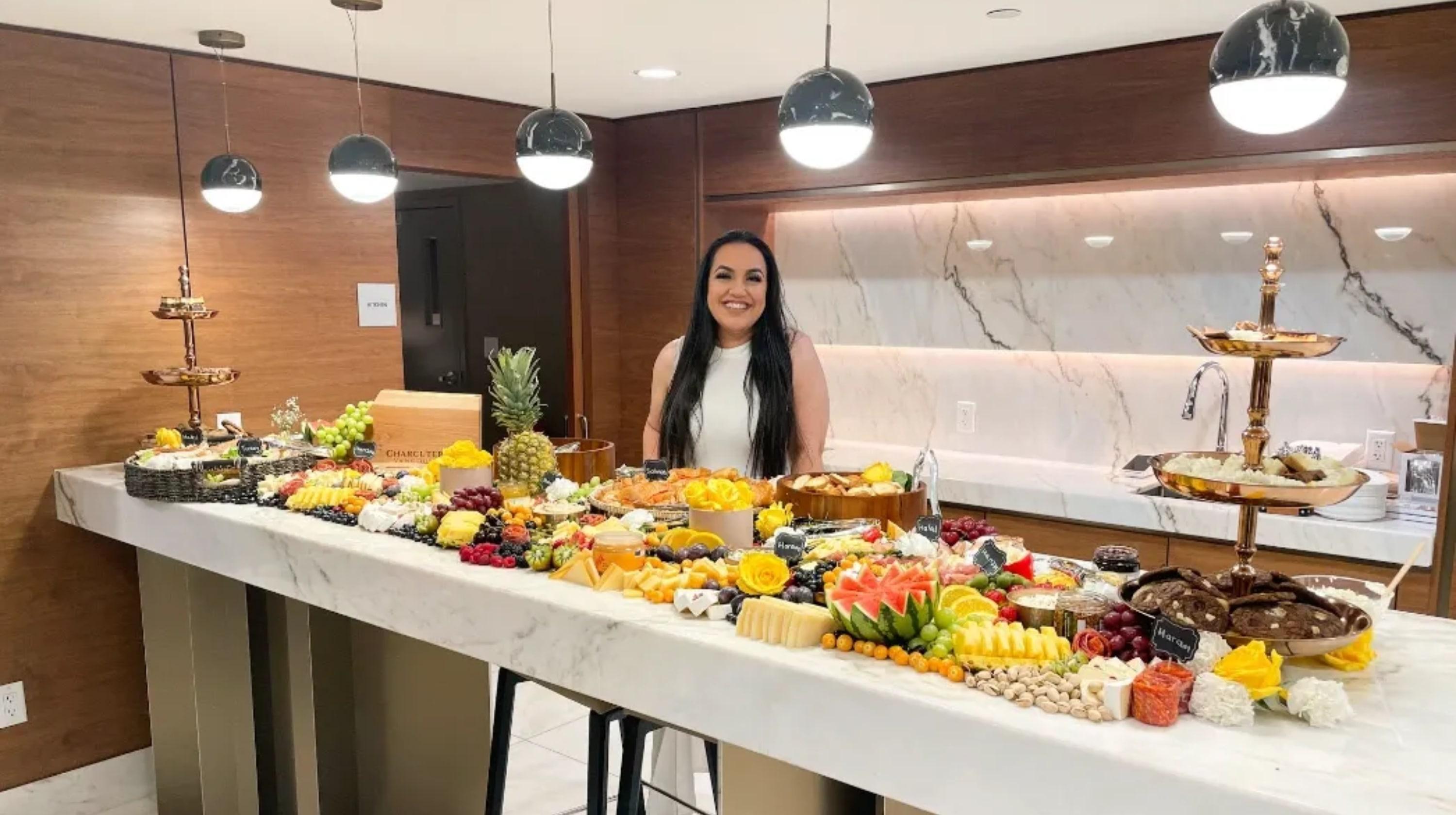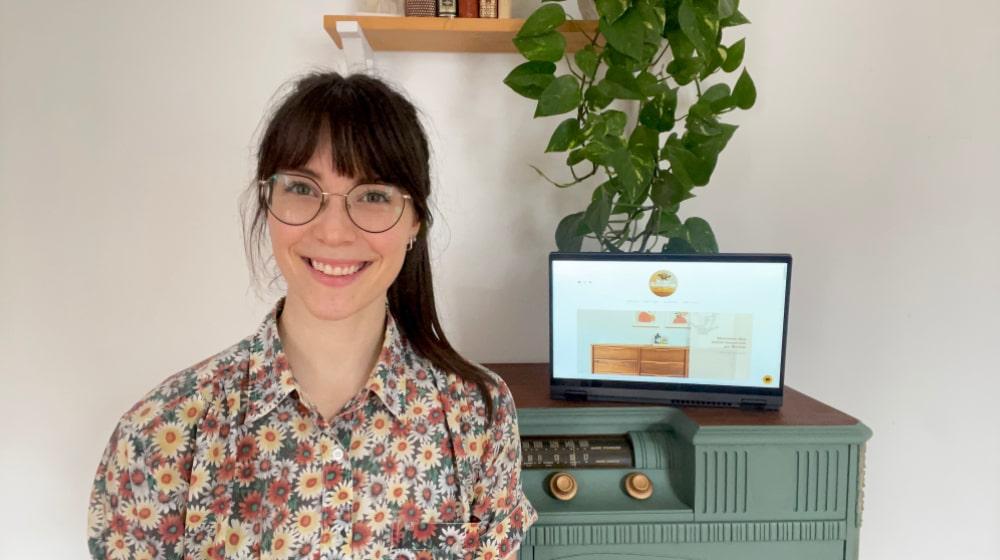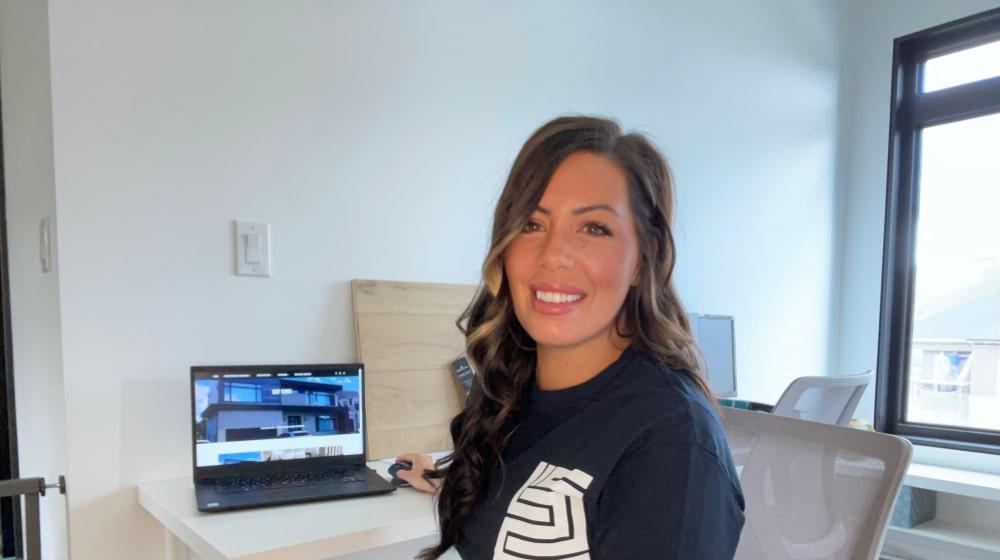Did you know that Black History Month is celebrated not just in Canada, but also in the U.S., the Netherlands and the United Kingdom? Personally, I look forward to this time of year because it shines a light on people who honestly deserve major props regardless of what day it is on the calendar. With that in mind, I want to share with you nine Black entrepreneurs who have inspired me to live a better life.
If you’re starting a business, looking to grow personally or professionally, or simply need a dose of motivation …
Tear a page from the books of these 9 Black entrepreneurs
From moguls to YouTube stars, this lineup of influential individuals offers actionable takeaways for just about all of us.
1. Oprah Winfrey
“Do the one thing you think you cannot do. Fail at it. Try again. Do better the second time. The only people who never tumble are those who never mount the high wire. This is your moment. Own it.” ~ Oprah Winfrey
I know Oprah makes it onto so many lists of high achievers who inspire the masses, but how can she not? IMHO, Oprah has been one of the most inspirational figures — from any walk of life — of all time.
Born into poverty, she’s now a self-made billionaire with her own network, her own magazine, and the ability to make other people into massive successes virtually overnight. Who else has had such a widespread impact on the success of others that their Midas Touch is called “The Oprah Effect?”
One of Oprah’s most valuable lessons for entrepreneurs (and anyone, really) is the need to experience failure — to embrace it — in order to get to the next level. “There is no such thing as failure ... failure is just life trying to move us in another direction,” she’s said. “Learn from every mistake.”
2. Robert L. Johnson
“Anything that has to do with money, I want to be in that business.” ~ Robert L. Johnson
Me, too, Mr. Johnson. Me, too.
America’s first Black billionaire, Robert L. Johnson and his wife founded Black Entertainment Television (BET) in 1979 in a much-needed move to better represent the Black experience on the small screen. He sold the network to Viacom in 2000 in a deal worth $3 billion.
Illustrating the financial power of a diverse portfolio, Johnson then launched the RLJ Companies, which invests in a wide variety of business interests — including hotel real estate, car dealerships, financial services, sports and entertainment, even VLT gaming.
Related: Resources for Black owned businesses in Canada
3. Madam C.J. Walker
“I am not merely satisfied in making money for myself, for I am endeavoring to provide employment for hundreds of women of my race.” ~ Madam C.J. Walker
Raised in the Deep South of the U.S. at a time when opportunities for African-Americans and women were nearly non-existent, Madam C.J. Walker, aka Sarah Breedlove, earned her wealth by creating products for African-American hair. In fact, she was one of the first American women to become a self-made millionaire.
According to info on her website: “I am a woman who came from the cotton fields of the South. From there I was promoted to the washtub. From there I was promoted to the cook kitchen. And from there I promoted myself into the business of manufacturing hair goods and preparations. … I have built my own factory on my own ground.”
What inspires me so much about her is that it was a scalp ailment that caused her own hair loss that led to her creating products for others.
I love stories like this! Rather than sitting in frustration with a problem, go-getters like Madam Walker go looking for a solution to help themselves and others.
If you’ve got a big idea and just need a shot of inspiration to get the ball rolling, take some advice from Madam C.J. Walker: “Don't sit down and wait for the opportunities to come. Get up and make them!”
4. Prince EA
“The way you do things isn’t the only way to do them. Respect other people’s way of thinking.” ~ Prince EA
Prince EA, aka Richard Williams, is that shining YouTube star you’ve probably watched in at least one or two videos that have gone viral on social media. With more than 1 billion views of his videos on Facebook alone, he spreads his thought-provoking messages via rap and spoken word. He says his goal with his YouTube channel “is to make people laugh, cry, think, and love with the ultimate goal to evolve.” Prince EA is now making bank on speaking engagements, YouTube advertising, film projects, and his own shop on his website.
Whether he’s tackling a controversial topic like his thoughts on depression or a deeply personal subject such as how to forgive anyone who has ever hurt you, his videos always make you think a little more than you might have before. At least that is the effect his work has on me.
Prince EA has so many truth bombs in his videos, but one of his quotes that particularly resonated with me brought me back to my high school math class, when I argued with my teacher about how to solve a math problem. Prince EA said, “Six plus three equals nine, but so does five plus four. The way you do things isn’t the only way to do them. Respect other people’s way of thinking.” How awesome is that truth nugget for the aspiring entrepreneur?
Related: How to make money on YouTube
5. Maggie L. Walker
“There is neither justice or good common sense in the demand that every woman should confine her activities to the domestic duties of home …” ~ Maggie L. Walker
Maggie L. Walker was the first Black woman to charter a bank in the United States. Considering she lived in a time when arguments were raging over whether women could even have the right to vote, and well before the Civil Rights Movement was even taking hold in the United States, Ms. Maggie is doubly inspirational in my book!
Raised in post-Civil War Virginia, Maggie dedicated her life to improving the odds for African-Americans and women — leading by example.
In addition to founding the bank, and serving as its first president and later chairperson of the board after it merged with two other banks — becoming, until 2009, the “oldest continually African American-operated bank in the United States” — Maggie advocated for the rights of African-American girls and women through her work with the National Association of Colored Women (NACW) and the Virginia Industrial School for Girls.
An amazing quote attributed to her is, “There is neither justice or good common sense in the demand that every woman should confine her activities to the domestic duties of home, regardless of what her inherited gifts and inclinations are, than it is sensible that every man should be a merchant.”
I’m personally so grateful that Maggie’s pioneering ideas are more accepted in my generation. I believe every person, regardless of race or gender, should be empowered to do what they want with their lives and careers.
6. John H. Johnson
“To succeed, one must be creative and persistent.” ~ John H. Johnson
Like fellow Black entrepreneur Robert L. Johnson years later, John H. Johnson launched a media empire to better represent the lives and times of Black Americans. In the early 1940s he founded the Johnson Publishing Company, producing magazines including Ebony and Jet. Unable to get a bank loan because of his skin color, Johnson used his mom’s furniture as collateral to secure the funding needed to launch his business.
“Failure is a word that I simply don’t accept,” he once said. The first African-American to appear on the Forbes 400 list, Johnson has been credited with creating the Black consumer market.
The lessons for entrepreneurs? Find your niche and fill it with goodness. Don’t give up in the face of adversity. Look for creative solutions.
7. Shonda Rhimes
“It's hard work that makes things happen. It's hard work that creates change.”
I’ve written about Shonda Rhimes before but I simply could not in good conscience write this list without mentioning her here again. She’s famous for creating shows like “How to Get Away With Murder,” “Grey’s Anatomy,” “Private Practice” and “Scandal.”
In a truth bomb quote from her 2014 Dartmouth commencement speech (below), Shonda encourages us to take serious action and do focused work to bring our goals to life. “Dreams are lovely. But they are just dreams. Fleeting, ephemeral, pretty,” she says. “But dreams do not come true just because you dream them. It's hard work that makes things happen. It's hard work that creates change."
Quit dreaming, and get back to work!
8. Sean Combs
“My mother was always working for a job, so I guess I was always trained that I should have multiple jobs, multiple aspirations.” ~ Sean Combs
You might know him as Puff Daddy or P. Diddy or Diddy, but the banks that hold his estimated $820 million in net worth know him as Sean Combs. He’s not just a rapper, singer and actor. No, Sean Combs dabbles in a variety of industries — from fashion to food and beverage.
In an interview with Forbes he shared the essence of his work ethic: “I started my business career at age 12, delivering newspapers. I had a lot of elderly customers, so I would always put the newspaper in between the screen door and the door — that caring made me different, made me better than the last paperboy.
“Since then, I've always understood that if I give the customers my best and service them differently, whether music, clothing or vodka, I'll get a return on my hard work.”
Even if you don’t like his music, or his vodka, or his clothes, I’ll bet this makes you at least respect him a little more. I am certainly in awe of all he has done.
9. Wallace Amos
“I believe, along with many others, that you must first ask for what you want before you can have it.” ~ Wallace Amos
Let’s end this lineup of inspirational Black entrepreneurs on a sweet note with Wallace Amos, aka Wally Amos, the man behind Famous Amos cookies. I don’t know about you, but I’ve never turned down a bag of Famous Amos chocolate chip cookies. Those suckers are tasty!
What’s really wild to me about the story behind the cookies, is that Wally found his money-making business idea by chance while working as the first Black talent agent in the history of the William Morris Agency (moving up from the mailroom to eventually sign big names like Simon & Garfunkel). He attracted his clients by sending them chocolate chip cookies along with an invitation to meet with him. In 1975 a friend told him he should sell his cookies in a store, and the rest, as they say, is history.
Wally ultimately sold his company to Keebler, but later found success again with the employee-owned Uncle Wally’s and United Baking Company. As it says on the company’s website: “Today, we pride ourselves as a family business, growing each year with the passion and focus that inspires our work.”
Passion? Focus? Cookies? There’s nothing more inspirational or sweeter to me than that!






